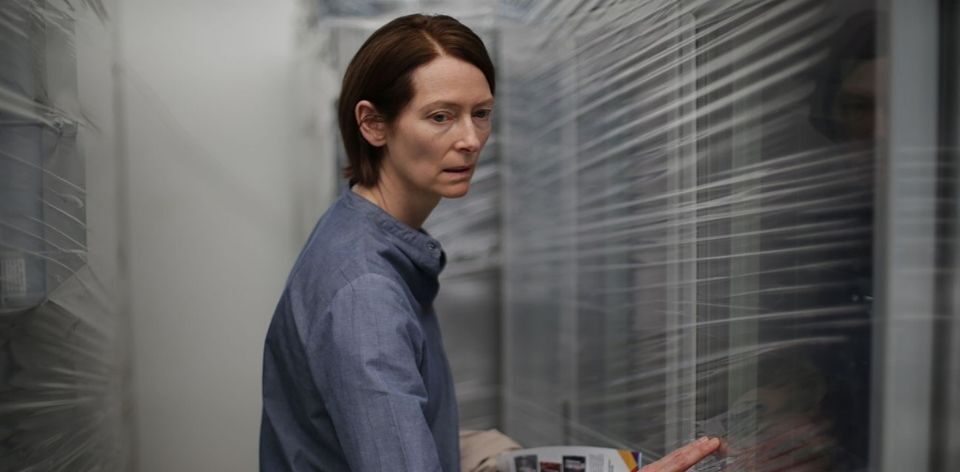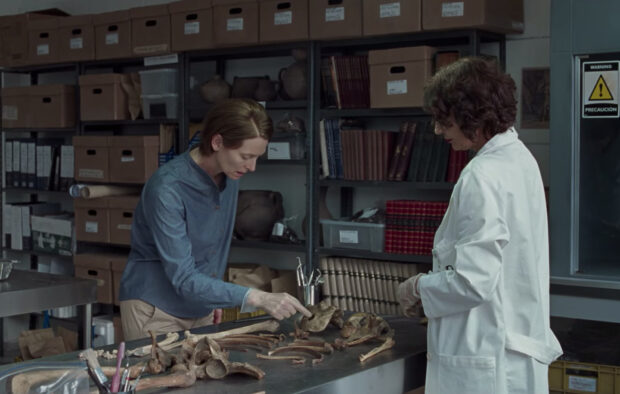It’s been over a decade since Thai director Apichatpong Weerasethakul won the Palme d’Or at Cannes for Uncle Boonmee Who Can Recall His Past Lives. His often meditative output is a dreamlike reflection on the interplay between nature and cities, not to mention Western perceptions of his native Thailand.
MEMORIA, his highly anticipated collaboration with Tilda Swinton, begins with a bang. A very specific bang, that is. In the film, Jessica (played by Swinton) is an English ex-pat living in Medellín, Colombia. She is awakened one night by a loud sound that she can’t quite identify. The film concerns her attempts to not only pinpoint the sound, but trace the invisible lines that lead her back to its origin.
Weerasethakul’s film is not so much one that you watch as experience, letting it wash over you so that you can soak it up. Early in the film, there’s a discussion of hygroscopic wood, being the kind the absorbs moisture from the air. Through a series of leisurely paced long takes, both Jessica and the cinema audience are a bit like that wood. We study a singular phenomenon together, connecting with Jessica’s sound and developing a shared memory. As Jessica hears the sound more often — making us jump with each sudden gunshot arrival out of the stillness — an inherent tension creeps into the film.
Which speaks to the central thesis of the film, one that ponders whether an auditory response can echo down through time like a shared memory. There’s a long scene where Jessica sits with audio tech Hernán (Juan Pablo Urrego) as he attempts to recreate the sound. Thumping through the cinema speaks like something rising up from the Earth, we share Jessica’s primal recognition of this otherworldly echo. Are these her memories or do they belong to someone else?
As the film builds to its ultimate reveal, with more overt sci-fi leanings, it leaves the city in favour of jungle climes. Shot on location in Columbia, there’s a singular moment that provides the answer linking past and present. It is not for me to reveal here, only to say that it mesmerised a theatre’s worth of people and ironically left us all silent.
MEMORIA is the kind of film designed for festivals, and specifically face-to-face ones where you can experience something collectively. In fact, on the bus ride from the Sydney Film Festival (and on my way to the next film), spontaneous conversations broke out between like-minded strangers who had all just seen Weerasethakul’s film. Which is probably the best analogy for the film itself, one that concerns groups of people who have experienced something specific together and try to classify it afterwards.
2021 | Thailand, Colombia, France, Germany, Mexico, China | DIRECTOR: Apichatpong Weerasethakul | WRITER: Apichatpong Weerasethakul | CAST: Tilda Swinton, Elkin Díaz, Jeanne Balibar, Juan Pablo Urrego, Daniel Giménez Cacho | DISTRIBUTOR: Madman Entertainment (AUS), NEON (US) | RUNNING TIME: 136 minutes | RELEASE DATE: 5 November 2021 (SFF), 26 December 2021 (USA)







